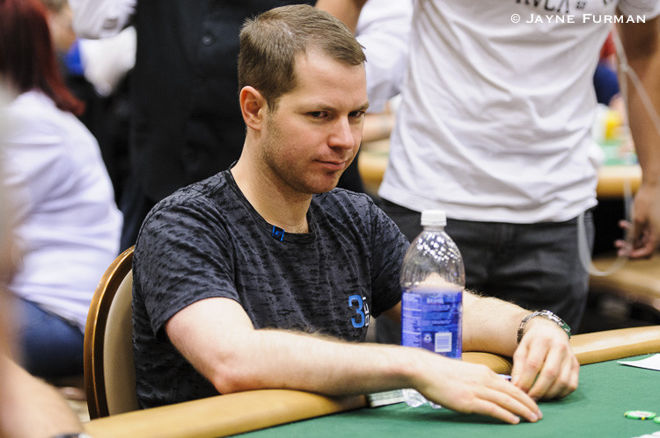Jonathan Little Poker Coaching Review
Premium members get INSTANT ACCESS to over 175 Coaching Webinars from top poker pros with more than $50 million in combined earnings! 4+ NEW Coaching Webinars. Jonathan Little reviews hands from a LIVE $5/$10 cash game which took place at the Bicycle Casino in Los Angeles. 4+ Hours; Location: Bicycle Casino. I had no time to prepare, so you make the show! To get access to this Full Course, Join PokerCoaching TODAY for 50% off HERE. Get your 4-handed charts now HERE. POKER COACHING: PokerCoaching.com has grown and now offers top-level coaching from myself, Jonathan Jaffe, Matt Affleck, Faraz Jaka, Michael Acevedo, Lexy Gavin, Tristan Wade, Alex Fitzgerald, and Evan Jarvis!
Card Player Magazine, available in print and online, covers poker strategy, poker news, online and casino poker, and poker legislation. Sign up today for a digital subscription to access more than 800 magazine issues and get 26 new issues per year!
One of my students recently played a hand at a $550 buy-in live tournament that illustrates an exploitative play you can make against many players in small-stakes poker games.
With a 55,000 effective stack and blinds at 500-1,000 with a 1,000 big blind ante, our Hero raised with J J from first position to 2,500. Everyone folded to the cutoff, a loose, passive player, who three-bet to 8,500.
At this point, Hero can be fairly certain his opponent has a premium hand, probably 10-10+ and A-Q+, because most passive players tend to three-bet with only their best hands and call with their non-premium hands. Given the opponent’s range is quite strong, Hero should not four-bet with J-J, because he will only get action when he is crushed by a better pair or flipping against A-K. Calling from out of position will lead to some difficult post-flop situations, but it is the best course of action given the opponent’s strong range.
Hero called and the flop came 10 8 2. Hero checked and his opponent bet 7,000 into the 19,500 pot.
Although Hero now loses to all of the opponent’s likely pocket pairs, he still beats A-K and A-Q. Given most players will continuation bet this flop with their entire range, Hero should call and see what develops on the turn.
The turn was the 4. Hero checked and the opponent checked behind, likely indicating an unpaired hand, probably A-K or A-Q. The river was the 3.
If the opponent’s range is mostly A-K and A-Q, he will usually check behind on the river, awarding Hero the small pot. Instead of happily collecting the small pot though, Hero should make a bet that can realistically get called by ace high. In this situation, a small bet makes a lot of sense, assuming the opponent will rarely (or never) raise as a bluff, which will usually be the case in most small-stakes games.

Betting small also has the added benefit of saving money when the opponent happens to have a cautiously-played overpair because Hero would have otherwise check-called a larger river bet.
Hero bet 4,500 into the 33,500 pot. The opponent thought for a while and eventually called with A K, giving Hero a nice pot.

While Hero’s 4,500 river bet worked out well, he perhaps left a few chips on the table. Since the pot was 33,500 chips, Hero probably could have bet 6,500, extracting an additional 2,000 chips.
While winning an extra two big blinds may not sound like a big deal, if you miss out on two big blinds every time you are in situations like this, it will add up to a small fortune over your lifetime as a poker player. That said, many players leave the entire river bet in their opponent’s stack, so it was a nice job by my student to extract it. ♠
Jonathan Little Poker Training
Jonathan Little is a professional poker player with over $7 million in live tournament earnings, best-selling author of 15 educational poker books, and 2019 GPI Poker Personality of the Year. If you want to increase your poker skills and learn to crush the games, check out his training site PokerCoaching.com. Click here to try PokerCoaching.com for free.